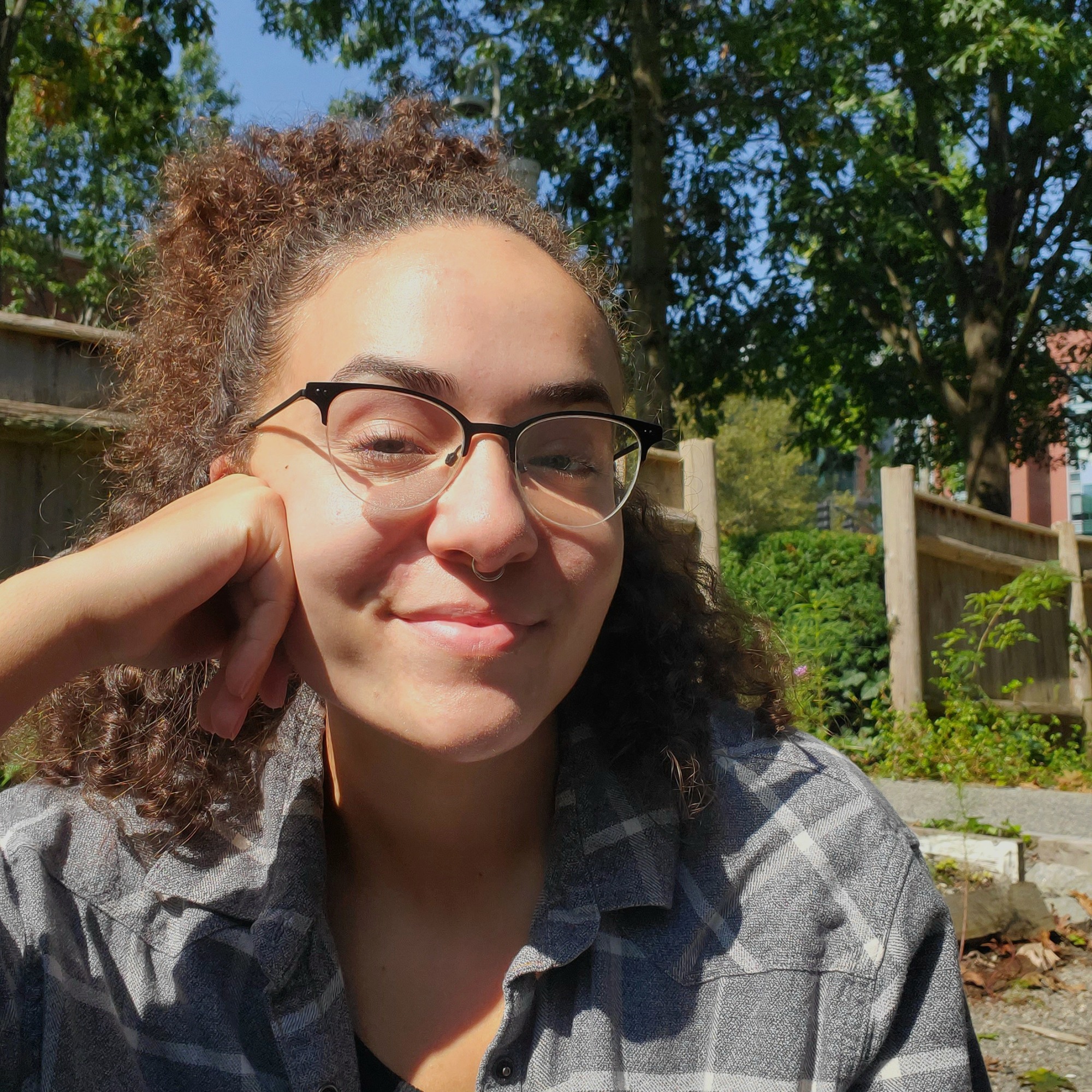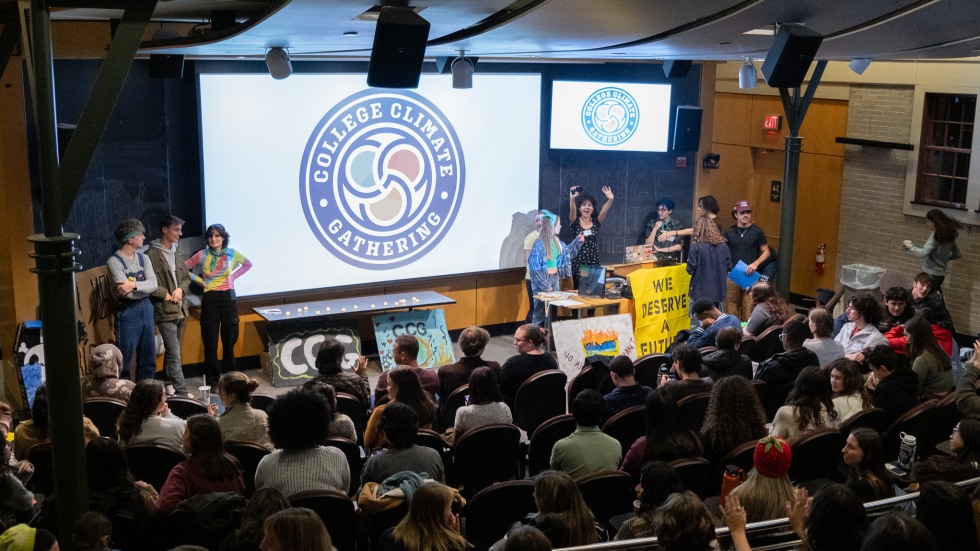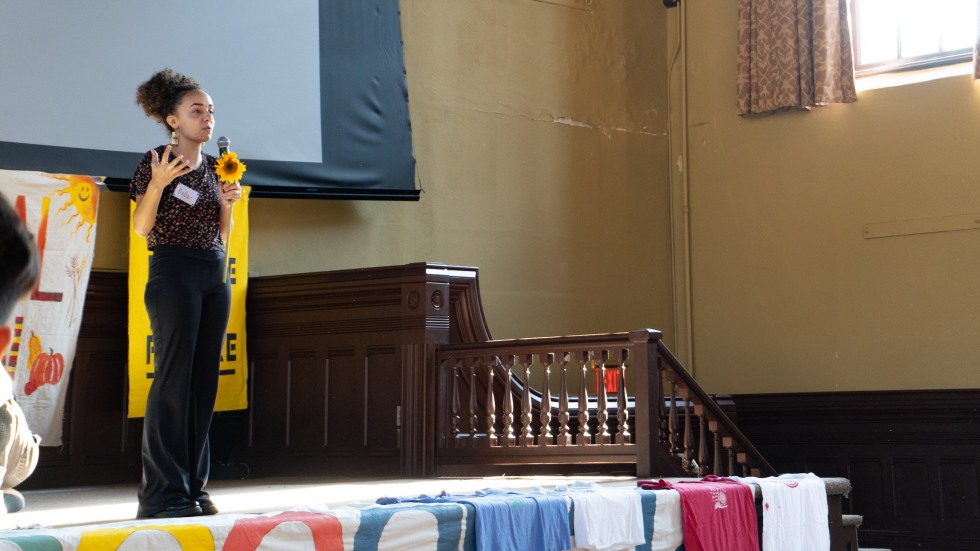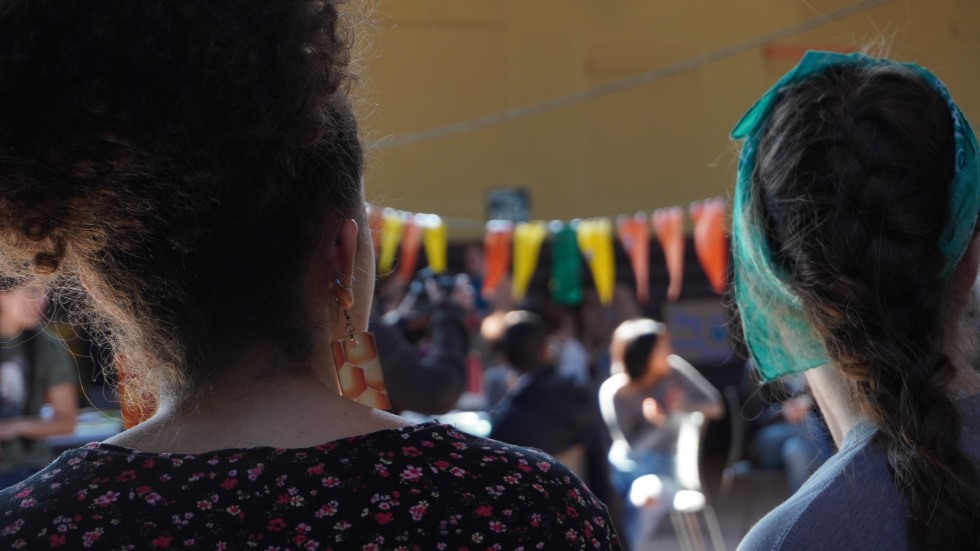Growing up, Isabella Garo ’24 never stayed in one place for too long. Coming from a military family, she has lived all over the globe, from North Dakota to a rural farming village in Germany — an upbringing she said has influenced how she views nature and the environment.

“I spent a lot of time playing in the woods or the stream that ran through the village,” she said, noting that cell reception was often hard to come by. “I think that gave me a significant appreciation for nature and connecting to it.”
In turn, Garo saw the natural world as a glue for her community. “We collectively take care of our environment because it impacts everyone’s health and it’s something we all enjoy,” she said, “especially living in a small village where everyone in the community knows each other.”
But it was in England that Garo’s environmental interests took root. During her senior year of high school, the youth-led Fridays for Future movement cast a spotlight on climate change in England’s national elections. Lacking the proper immigration status to vote, Garo decided to get involved by participating in school walkouts and advocating for friends to vote in support of climate action.
From interest to imperative
After Britain’s Conservative Party, which has historically deprioritized climate action, won the national election, she felt both confused and upset, a sentiment that was later compounded by the social unrest she witnessed in the U.S. in 2020. This “lit a fire” under her and inspired her to concentrate in environmental studies and political science.
At Brown, Garo has served as an IBES peer advisor and researched offshore wind disinformation in Congress with IBES’ Climate and Development Lab.
“I looked specifically at the Congressional Record and the kind of rhetoric politicians use to defend their policy stances,” she said. “As part of that research, I read the actual bills and amendments they were proposing about energy policy. It was definitely at the perfect crossroads — this nexus between my political science and environmental studies interests,” she added.
Garo is also looking forward to a nascent project that looks to “demonstrate how social justice rhetoric is being used and co-opted in climate bills,” she said. “This way we can get ahead of it before it becomes widely used.”


